COVID-19

Black Women Nominated for Appellate Court & Op-Ed on Tech CEOs Testimony: April 1 Joint Center Roundup
Biden Administration

Biden’s First Appellate Court Nominations: Three Black Women. For his first three federal Court of Appeals nominations, President Biden named three Black women—Ketanji Brown Jackson, Tiffany Cunningham, and Candace Jackson-Akiwumi. The Joint Center—which urged President Biden to prioritize Black federal appellate court nominations in February—commends President Biden for this major step.
The nominations are critical because the nation’s 18 Black federal appellate judges are overrepresented among judges eligible to retire. If all Black federal appellate judges eligible to retire did so tomorrow, only 5% of active federal appellate judges would be African American. Of President Trump’s 54 U.S. appellate judge nominations, none were Black. Federal appellate courts are significant to Black communities because they are the final arbiters of most lawsuits (the U.S. Supreme Court accepts only about 2% of the cases it is asked to review), and federal appellate courts determine how federal law will be construed on issues that have not been ruled on by the Supreme Court.
President Biden’s nomination of U.S. District Judge Ketanji Brown Jackson to serve on the U.S. Court of Appeals for the DC Circuit is a major stepping stone for her to possibly serve in the U.S. Supreme Court, as Supreme Court Justice Stephen Breyer may retire soon. Judge Jackson, who formerly clerked for Justice Breyer, has served on the U.S. District Court for DC since 2013.
For the Seventh Circuit (which includes Illinois, Wisconsin, and Indiana), President Biden nominated Candace Jackson-Akiwumi. There has not been an active Black judge on the Seventh Circuit since 2018, when Judge Ann Claire Williams retired. Judge Jackson-Akiwumi’s nomination is especially significant as she will be the “first-ever former federal defender” to join the Seventh Circuit.
For the Federal Circuit, President Biden nominated Tiffany Cunningham, who would be the first Black judge ever on the Federal Circuit if confirmed by the Senate. The Federal Circuit has nationwide jurisdiction over patents, trademarks, international trade, government contracts, and a few other areas. Cunningham specializes in patent litigation as a partner at Perkins Coie LLP in Chicago and previously clerked for Judge Timothy B. Dyk on the U.S. Court of Appeals for the Federal Circuit.
Biden releases details of infrastructure plan: Yesterday the White House released details of President Biden’s proposed “American Jobs Plan.” The proposal includes plans to eliminate lead water pipes and upgrade sewer systems, bring affordable, reliable, high-speed broadband to every American including the more than 35 percent of rural Americans who lack access to broadband at minimally acceptable speeds, and fund research at HBCUs. The plan would also invest $100 billion in workforce development, including sector-based training and building the capacity of workforce development systems. Biden reportedly wants his $2 trillion infrastructure plan passed this summer. Read a full summary of the plan here.
Relief for Black borrowers who are in default on loans: The Biden administration expands the pause on student loan interest and collections to borrowers in loan default made by private lenders. Black borrowers tend to “have the highest rates of default and delinquency while in repayment” and Black borrowers in default are now protected from risks of “having their tax refund seized.”
Biden administration extends the Paycheck Protect Program: In an effort to provide more relief to small Black businesses who were “bypassed” during the first round of the Payment Protection Program, President Biden authorizes H.R. 1799, the “PPP Extension Act of 2021.” This bill extends the deadline to apply for a PPP loan from March 31 to May 31 and extends the loan authorization process to June 30, providing the Small Business Administration additional time to process applications.
Pandemic relief centers Black women and girls: White House staffers Kalisha Dessoures Figures and Catherine E. Lhamon wrote a post asserting that American Rescue Plan includes changes that pursue racial justice and gender equity for Black women and girls who are 2.5 times more likely to die from pregnancy complications, are “suspended from school at higher rates than girls of any other race or ethnicity,” and face high levels of workplace discrimination, homelessness, and violence. They write that $1.9 trillion plan includes a public health corps to “mobilize 100,000 community health workers to provide culturally competent care,” ensures government approaches to equity keep in mind “the specific barriers that Black, Indigenous, and other women and girls of color face every step of the way,” and is “projected to cut poverty in the Black community by 38 percent.”
The Hill
Georgia voter suppression renews federal push for Voting Rights Act, H.R. 1, and filibuster reform: After massive turnout by Black Georgians that resulted in Republicans losing control of the U.S. Senate, last Thursday Georgia Republicans enacted state election laws that many claim would suppress Black votes. The laws put restrictions on drop boxes for absentee ballots, would make it a misdemeanor to provide food or water to voters in line (Black voters often have longer wait times to vote), ban mobile voting units which help African Americans access early voting, and more.
In response, federal lawmakers are working to update a provision of the Voting Rights Act that required federal preapproval of new state and local election laws to ensure they are not discriminatory (had such preclearance been in effect, Georgia officials would have had to prove to federal officials that new election laws are not discriminatory before the new laws are used in an election). Lawmakers are also working to pass HR 1 – For the People Act of 2021, which could open voter access in federal elections by expanding automatic and same-day registration, vote-by-mail, and early voting, and by limiting the purging of voters from voter rolls.
Both federal bills face the possibility of a Senate filibuster, and President Biden and many Democrats are calling for federal filibuster reform. Senator Warnock (D-GA) pointed out the hypocrisy of lawmakers arguing to preserve the filibuster to protect the minority voting rights of Senators so that they can effectively dilute the voting rights of voters of color in places like Georgia.
Speaker Nancy Pelosi taps Major General William Walker to be the first African American to lead U.S. security: According to Reuters, Commander Walker “criticized the Pentagon for taking hours to approve a request by the U.S. Capitol Police for National Guard troops to help respond to the deadly Jan. 6 attack on Congress by supporters of Donald Trump.” He has commanded the DC National Guard since 2018 and has 39 years of military experience.
Honoring Shirley Chisholm in the United States Capitol: Rosa Parks is the only Black woman civil rights icon memorialized in the Capitol. Congresswoman Yvette Clarke (D-NY) is advocating for the immediate representation of additional Black women trailblazers in the Capitol, such as Shirley Chisholm, the first Black woman elected to Congress.
Appointments
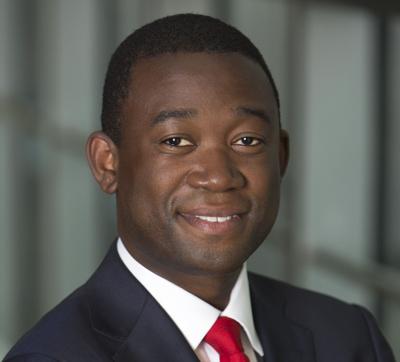
Senate confirms Adewale “Wally” Adeyamo as Deputy Treasury Secretary. Adeyamo is the first Black person in the number two spot at Treasury.

Biden nominates Ron Davis for Director of the United States Marshal Service. He previously served in the Obama Administration as the Director of the Office of Community Oriented Policing Services (COPS) in the U.S. Department of Justice.
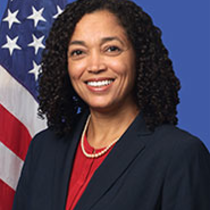
Biden nominates Victoria Wassmer for Assistant Secretary for Budget and Programs and Chief Financial Officer, Department of Transportation. She currently serves as the Deputy Assistant Secretary for Finance and Budget at the Department of Transportation.

CBC Members urge Biden to tap Mehrsa Baradaran for OCC: Thirty-four members of the Congressional Black Caucus sign a one-page letter urging the Biden administration to appoint Mehrsa Baradaran as the Comptroller of the Currency. The CBC describes Baradaran as “a superb scholar and shopper advocate who has devoted her profession to understanding and narrowing the racial wealth hole” and names her appointment as “transformative” given the position’s obligation to bridge racial wealth gaps and alleviate “the persistent subject of wealth inequality.”

Biden appoints Jeremy Adamson as a Policy Advisor for Trade and Foreign Agricultural Affairs in the Foreign Agricultural Service at USDA. He previously served as a Portfolio Manager at Certis USA.
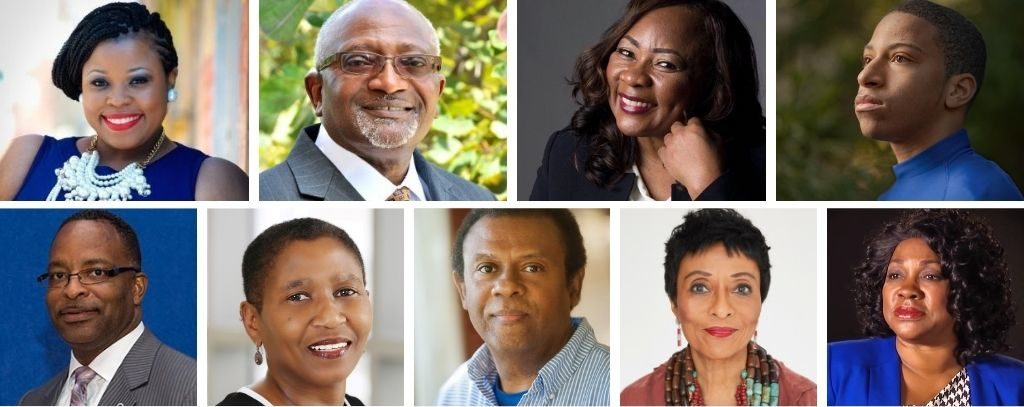
Biden appointed the following African Americans to serve on the White House Environmental Justice Advisory Council (in order of left to right, top to bottom): LaTricea Adams, Dr. Robert D. Bullard, Catherine Flowers, Jerome Foster II, Harold Mitchell Jr., Michele A. Roberts, Dr. Nicky Sheats, Peggy Shepard, and Dr. Beverly L. Wright.
Economic Policy
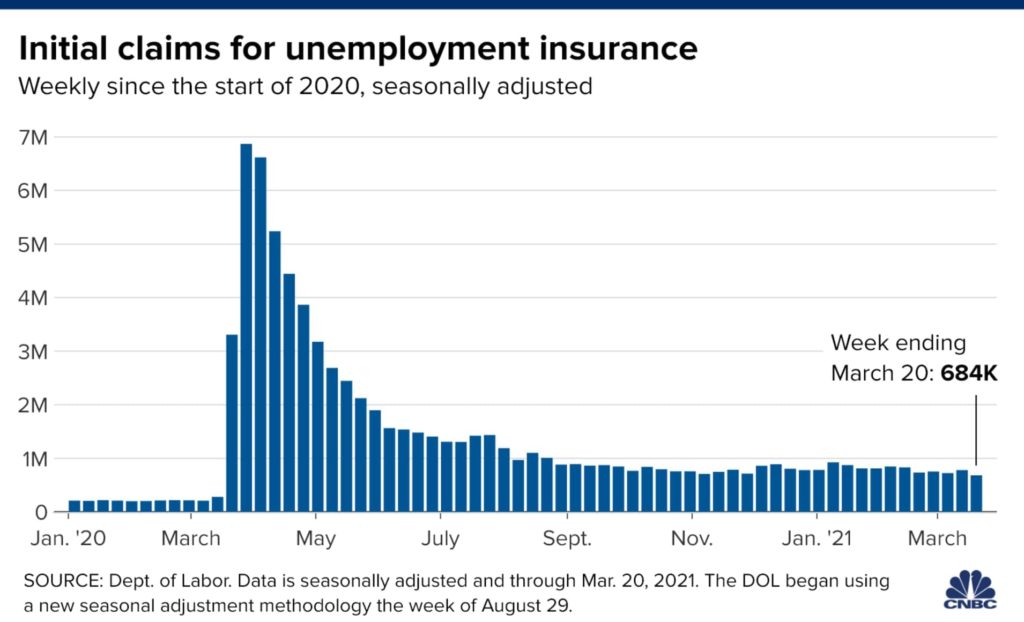
Unemployment claims drop sharply: Initial unemployment claims fell to 684,000 for the week ending March 20, which was lower than the pre-pandemic record of 695,000 for the first time since the COVID-19 outbreak began.
Black-white jobless gap widens: Black unemployment nearly reached its historical trend of twice white unemployment in the third and fourth quarters of 2020 by rising from 60 percent to 90 percent higher than white unemployment according to the Economic Policy Institute.
Black workers left behind: Black employment is slow to recover from the pandemic. In February, the Black unemployment rate rose 0.7 percentage points, while the rate for all other groups declined.
Black communities continue to diversify: Of the 46.8 million people in the U.S. who identify as Black, the share who say Black is their only racial identity declined to 87 percent, down from 93 percent in 2000, according to Pew Research. Black people now make up about 14 percent of the U.S. population and over half (56 percent) live in the South.
Gender wage gaps persist: Black women earn 63 cents for every dollar white men earn. Latinas earn 55 cents, Native American women earn 60 cents, white women earn 79 cents, and Asian American women earn 85 cents compared to white men, according to the National Women’s Law Center.
Solar in the city: To address climate change, high energy costs, and low levels of opportunity, a Black entrepreneur is using solar panels to bring clean energy to more than 1,100 low-income buildings in the New York area.
Small business fallout: Black-owned businesses continue to struggle with 66 percent of all minority businesses that shut down last year at risk of never reopening.
Black women best: The Aspen Institute outlines the lessons of Black women’s economic thought leadership, including the importance of centering the most vulnerable populations in economic policy.

Only a drop in the bucket: The $5 billion direct relief for farmers of color in Biden’s stimulus package should be just the start, says the Center for Public Integrity. Black-owned farmland has declined by 85 percent over the past century, harming rural Black communities.
What about us? Small business owners are pushing for retroactive changes to the Paycheck Protection Program that would allow owners to benefit from recent changes, such as using gross profit instead of net profit in estimating loan amounts, even if they applied for a loan before the Biden administration announced new rules.
Tech Policy
Commentary on Tech CEOs testimony: In an opinion piece on last week’s joint congressional hearing with Facebook CEO Mark Zuckerberg, Google CEO Sundar Pichai, and Twitter CEO Jack Dorsey, Joint Center Technology Policy Director Dr. Dominique Harrison said “there was a missed opportunity by all the CEOs to take responsibility for civil rights violations under Section 230, ad-discrimination, and the incompletion of civil rights audits” and “these issues have a relationship to the harm and bias Black people face on social media platforms.”
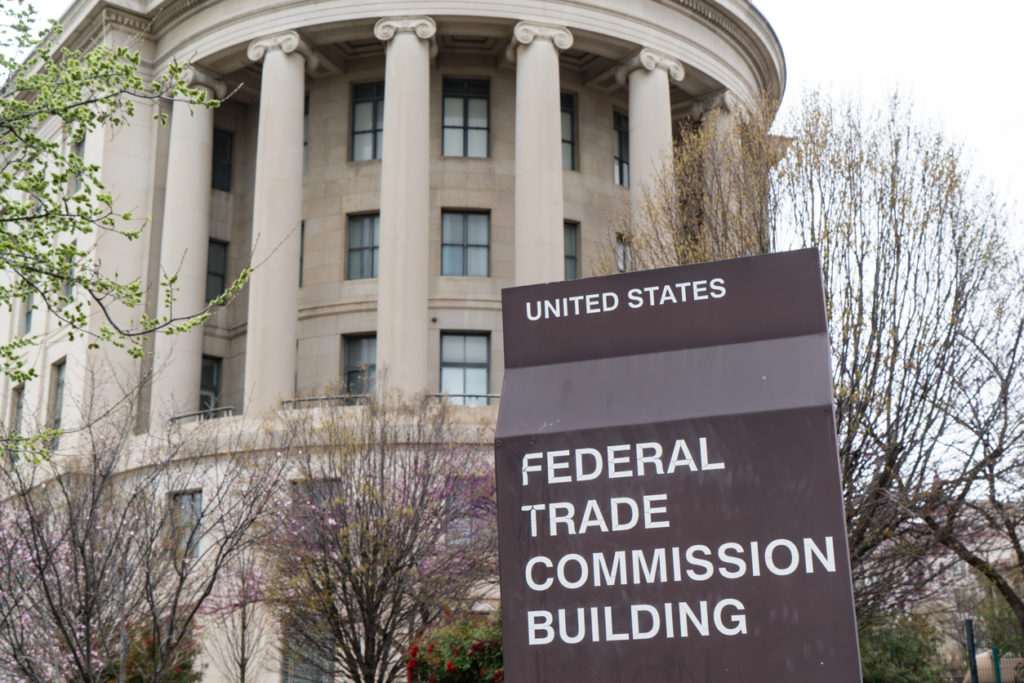
Urgency for FTC Commissioners: The Joint Center joined a coalition of 24 tech policy and civil rights groups calling on the Federal Trade Commission to quickly nominate and confirm commissioners that will advance equity and racial justice. The FTC should commit the agency to addressing data abuses that disproportionately affect marginalized communities.
Improving facial recognition tech: Civil and social rights experts offer recommendations for mitigating the discrimination inherent in facial recognition and other technologies used in policing, public housing, and education. The suggestions include a moratorium on the use of new technologies and requiring tech companies to perform a racial equity analysis on products that may exacerbate disparities.
Online hate speech grows: Despite social media companies’ step to address online hate speech, a new report finds that Black people and Asian Americans faced unprecedented social media harassment in 2020. Fully 59 percent of Black people experienced race-based harassment, up from 42 percent a year earlier.
The perils of doing away with human judgment: Rashida Richardson, Visiting Scholar, Rutgers Institute for Information Policy & Law, offers two definitions of “automated decision systems” to help policymakers recognize and address the possible consequences of replacing human decision-making with such systems. To demonstrate the significance and applicability of her definitions, she explores teacher evaluation systems and gang databases, which warrant greater public scrutiny and regulation. Richardson’s research has implications for communities who face harassment by law enforcement and discrimination in housing and education.
A digital New Deal: An expanded civic infrastructure should include affordable broadband and digital tools that respond to community needs, say scholars at the German Marshall Fund. Among the recommendations are creating “digital inclusions funds” and using wireless mesh networks to provide low-cost or no-cost networks in low-income communities.
Better broadband for schools: Local governments are testing new ideas to expand broadband access for public school students, including municipal broadband networks and equipping homes with wireless broadband. Despite these great efforts, many states have banned or restricted localities from offering high-speed internet access.
Future of Work & Learning
New directions for higher ed: Higher education leaders, including the dean emeritus of Howard University’s School of Education, discussed the role of higher education in light of the evolving job market, escalating student loan debt, and disparities exacerbated by the pandemic. Encouragingly, dropout rates are at an all-time low for Black and Latina/o students, and Black and Latina/o high school seniors are enrolling in college at higher rates.
Some college, no degree: States are working to re-engage the 36 million adults who have attended college but have not yet earned a degree. According to the National Student Clearinghouse Research Center, Black students who return to college are slightly more likely to earn both associate’s and bachelor’s degrees than Black students in general. Strategies include lowering costs and developing easier-to-use online tools to re-enroll in or explore post-secondary education opportunities.
Work doesn’t pay: Interviews with 50 California gig workers earning $15 per hour or less—76 percent of whom were Black and other people of color—revealed a reliance on low-paying work with no benefits supplemented by side hustles and entrepreneurship.
Make transfer easier: The accelerating rate of digitization and job automation calls for an easier path to a BA for community college students, argues the Aspen Institute’s Tania LaViolet. Leaders should also address inequities in BA attainment among Black adults, which trails white attainment by 14 percent.
Retraining a workforce: Post-pandemic predictions for online learning include more online retraining options for those displaced from jobs due to the pandemic, including the 9.9 percent of Black workers who are unemployed.
COVID-19

Getting the word out: The White House is launching a national media campaign to reduce COVID-19 vaccine resistance and hesitancy in Black and Latina/o communities. The effort represents a shift by the Biden administration to a more targeted public education campaign promoting vaccine safety and effectiveness.
Willing but still waiting: Initial vaccination resistance has given way to an increased demand for wider and more equitable access to vaccines. One poll shows that 26 percent of white people report being vaccinated versus 17 percent of Black adults. Another poll shows that 67 percent of Black people are willing to be vaccinated. In New York City, 29 percent of white adults have received at least one vaccine shot versus 16 percent of Black adults.
Where the pandemic hit hardest: A new CDC report confirms that counties with large proportions of Black, Asian, and Latina/o populations were among the hardest hit by the first and second waves of COVID-19. Among counties with large Black populations, 28 percent reported widespread transmission during the first two weeks of April compared with 11 percent of all U.S. counties. At the peak of the second wave in August, 92 percent of counties with large Black populations reported widespread transmission.
Most Black students still learning remotely: In-person learning varies widely by region and race, a Biden administration survey of public schools reveals. Among fourth graders, nearly half of white students were learning fully in-person, with just over 25 percent learning remotely. In contrast, 60 percent of Black and Latina/o students were learning remotely.
Political Studies
Tracking top staff diversity of newly-elected Members: As of March 30, the Joint Center’s report card tracking top staff hires by each new Member in the 117th Congress illustrates that of the top staff hired by new Members, so far 24.9 percent are people of color, and 5.7 percent are African American. People of color account for 40 percent of the U.S. population and African Americans account for 13.4 percent of the U.S. Just over 98 percent (or 209 of 213) of the possible positions have already been filled. Alex Padilla (D-CA) continues to lead in the Senate and Marilyn Strickland (D-WA) continues to lead in the House for hiring diverse staff in comparison to the diversity of their districts or states. Sen. Mark Kelly (D-AZ) and Rep. Yvette Herrell (R-NM) are at the bottom of the lists.
Activists sue Georgia: In addition to illustrating the need for federal legislation (see above), Georgia’s new voting restrictions face a legal challenge in federal court as plaintiffs charge the new law violates the 1965 Voting Rights Act. Among other restrictions, the state voting law limits ballot drop boxes and adds a new ID requirement for absentee ballots, which opponents say deliberately limit the influence of Black voters.
Over 70 Black corporate executives ask companies to fight Georgia voter suppression in NY Times ad: The ad ran yesterday, and the executives stated that “Corporate America should publicly oppose any discriminatory legislation and all measures designed to limit Americans’ ability to vote.” Signatories included former Xerox CEO Ursula Burns, Former Amex CEO Kenneth Chenault, TIAA President Roger W. Ferguson, Jr., Merck CEO Kenneth C. Frazier, former Young & Rubicam CEO Ann M Fudge, Starbucks Board Chair Mellody Hobson, former BET CEO Debra L. Lee, former Infor CEO Charles Phillips, Ariel Investments co-CEO John W. Rogers, Jr., Uber Chief Legal Officer Tony West, and many others. The Black Economic Alliance posted the ad’s complete text and signatories here.
Steps to a more inclusive democracy: Dēmos introduced the Inclusive Democracy Agenda dedicated to prioritizing “solutions that are advanced by, and build power for…Black and brown people.” Policy positions include codifying voting as a constitutional right and universal voter registration.
A shared American history: The rise in violence against Asian Americans and Pacific Islanders has raised awareness of the shared struggle against racism but also of past mistrust and conflict between Black and Asian American communities.
Movement Building
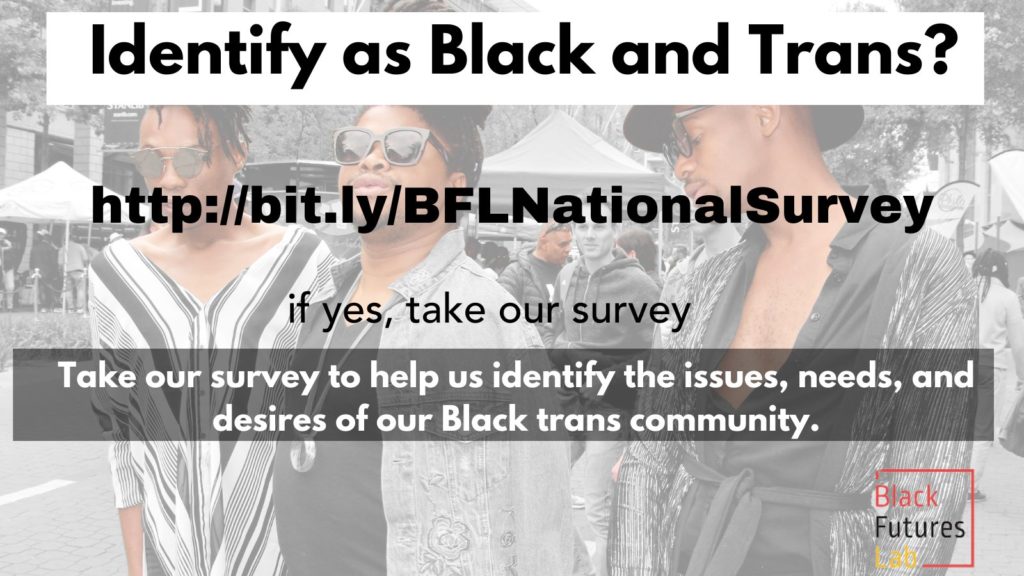
Black Futures Lab is conducting a national survey of Black people to better understand issues impacting Black communities and emphasizes the desire for Black transgender respondents.
Black to the Future Action Fund will host a Digital Action Power Hour to send a message to Congress and the Biden-Harris administration about the Black Mandate and its critical importance to providing care and relief for Black communities.
Color of Change issues a petition to reform the “Jim Crow Filibuster” that “limits Black voters access to the ballot” and threatens to block two voting rights bills (For The People Act and the John R. Lewis Voting Rights Advancement Act).
Southside Together Organizing for Power and UChicago for a Community Benefits Agreement (CBA) hosts a town hall to develop a vision for Woodlawn’s future including provisions to ensure residents can keep their housing in years to come.
The Aspen Institute launches their new Job Quality Tools Library to “support leaders working in a variety of fields related to economic opportunity to engage in practical action to improve jobs.”
The 100 Black Men of Augusta restarts its COVID-19 community tour aimed at providing COVID-19 health and wellness information and education to underserved communities.
A network of Black women farmers provides fresh produce to communities in the St. Louis area.
Events
Upcoming events include “Restoring Immigrant Families’ Connections to the Safety Net” (Urban Institute, April 1); “Lessons Learned: A Year of Online Learning” (Third Way, April 5); “Rethinking unemployment insurance and housing support: Policies to protect workers and families” (Brookings Institution, April 13).
Last week, events were held by Cornell University, Institute for Women’s Policy Research and Chicago Women in Trades, National Urban League, PBS, The Hunt Institute, Third Way, Urban Institute, and the Washington Post.
Podcasts
The Secretaries of Education (Future U)
TechTank Podcast Episode 15: To build back better, the U.S. needs a digital service corps (Brookings Institution)
An Alabama Amazon Worker’s Case for Unionization (In These Times)
The Joint Center thanks the Annie E. Casey Foundation, the Boulé Foundation, the Democracy Fund, Toyota Motor North America, Inc., UPS, and the Walmart Foundation for additional support that has allowed us to do some of our COVID-19 and Black Communities work.
To receive the Joint Center’s emails, sign-up here.

